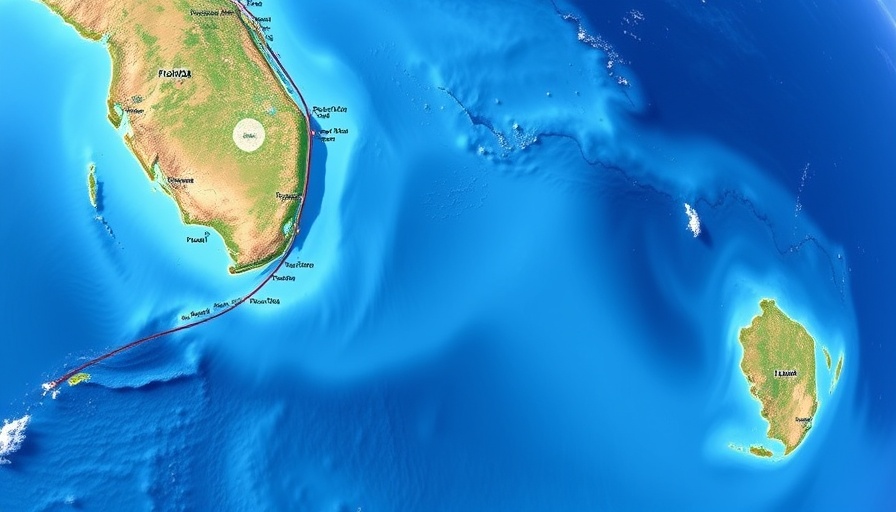
Shark Activity Soars in Florida’s Waters
As drumrolls of excitement build for summer’s beach days, thrill-seekers should be aware: shark activity in Florida waters reaches its peak from April to October. This timeline not only coincides with peak swim season for humans but also with increased chances for encounters beneath the waves. According to reports, Florida recorded a staggering 14 shark bites in 2024 alone, making up 30% of global unprovoked attacks. Volusia County, nicknamed the 'Shark Bite Capital of the World,' is a hotspot for these encounters, reminding beachgoers to exercise caution.
The Appeal of Florida’s Beaches
With miles of inviting shorelines, Florida beaches attract a multitude of ocean lovers eager for sun and surf. Areas like Daytona Beach, New Smyrna, and Ormond Beach stand out not only for their beauty but also for their notoriety in shark bite occurrences. The vibrancy of the local summer culture often sees families flocking to these beaches—an apparent invitation for both humans and sharks to share the waves. Understanding that sharks typically roam these waters during the busy season sheds light on how best to enjoy the beaches safely.
Rethinking the Shark Bite Narrative
Despite the alarming statistics, it’s crucial to reframe the conversation around shark bites. While risks exist, being bitten is exceedingly rare; you're 30 times more likely to be struck by lightning than to experience a shark bite. Education is pivotal. The Florida Fish and Wildlife Conservation Commission (FWC) encourages swimmers to stay in groups, avoid murky waters, and refrain from excessive splashing—actions that can help reduce the likelihood of a shark approaching.
Can Humans and Sharks Coexist?
The ocean is a shared ecosystem, often underappreciated by those on the beach. Sharks, like many apex predators, play integral roles in maintaining the health of marine environments. Their presence indicates vibrant underwater life, which should be celebrated rather than feared. In fact, the vast majority of shark species are harmless to humans and contribute to balanced ocean health. Promoting peaceful coexistence through awareness and safety tips can enhance both the joy of swimming and the health of marine species.
Proactive Safety Steps
Using knowledge as a tool: While it’s impossible to entirely eliminate the risk of a shark bite, utilizing available safety insights can significantly reduce this risk. Whether you’re a local or a tourist, heed advisories from the Florida Fish and Wildlife Conservation Commission. Stick to swimming in designated areas monitored by lifeguards, follow any posted signs regarding shark activity, and always remain vigilant. Remember, knowledge is your best companion for fun-filled, safe beach outings.
What Beachgoers Should Know
As summer approaches, it may be worth considering ways to enhance personal safety on Florida beaches. Awareness of peak shark activity months alongside beach etiquette can go a long way. Joining a community of informed beachgoers not only strengthens safety measures but also fosters a narrative that embraces nature. Next time you hit the sand, remember: the ocean is home to magnificent creatures. Respect, awareness, and proactive measures enable harmony between humans and sharks, allowing everyone to enjoy the sun, sand, and surf.
 Add Row
Add Row  Add
Add 




 Add Row
Add Row  Add
Add 

Write A Comment